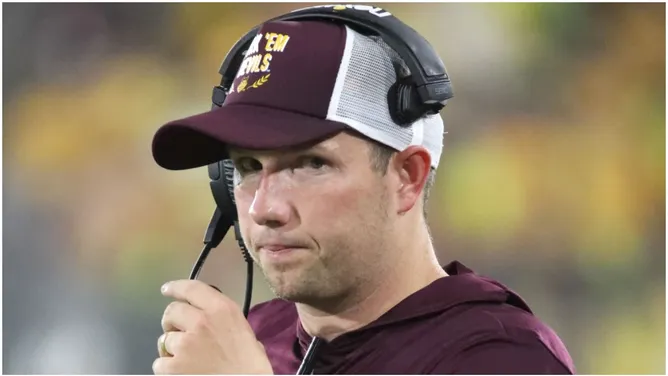
Navigating the ever-evolving landscape of college football coaching comes with its fair share of challenges and uncertainties. From the relentless demands of recruiting to the pressures of on-field performance, coaches find themselves in a constant battle to maintain balance and sanity amidst the chaos. In recent years, a noticeable trend has emerged, with coaches at various levels of the game making unexpected career moves in pursuit of personal well-being and professional fulfillment.
The phenomenon of coaches stepping away from high-profile positions or opting for lower-tier roles has sparked widespread debate within the college football community. Some view these decisions as a necessary recalibration of priorities in an increasingly demanding profession, while others see them as signs of weakness or lack of commitment. Regardless of perspective, it’s evident that the dynamics of coaching in college football are undergoing significant shifts, prompting introspection and reassessment among those involved.
Arizona State head coach Kenny Dillingham is among those who have weighed in on the matter, offering candid insights into the challenges and realities of coaching at the collegiate level. With a career spanning nearly a decade in the coaching ranks, Dillingham has experienced firsthand the highs and lows of the profession, giving him a unique perspective on the current state of affairs.
In a recent interview, Dillingham expressed frustration with what he perceives as a prevailing culture of complaint and entitlement among some of his coaching peers. He lamented the tendency of some coaches to bemoan the sacrifices and challenges of the job, emphasizing the abundance of aspiring coaches eager to step into their shoes. Dillingham’s message is clear: if you’re not willing to embrace the demands of coaching wholeheartedly, then perhaps it’s time to consider alternative career paths.
However, Dillingham’s stance is not without nuance. While he advocates for a strong work ethic and unwavering commitment to the profession, he also acknowledges the need for balance and self-care. Recognizing the toll that the relentless grind of coaching can take on personal and family life, Dillingham urges coaches to find a rhythm that allows for both professional success and personal fulfillment.
The challenges facing college football coaches extend beyond the field, encompassing a myriad of factors ranging from recruiting pressures to the proliferation of new technologies and communication channels. In an era where the line between work and personal life is increasingly blurred, coaches must navigate a delicate balance between ambition and self-preservation.
Ultimately, the decision to pursue a career in college football coaching is a deeply personal one, influenced by a multitude of factors including passion, ambition, and lifestyle preferences. While some may thrive in the high-stakes, high-pressure environment of collegiate athletics, others may find themselves overwhelmed or disillusioned by its demands. As the coaching landscape continues to evolve, coaches like Kenny Dillingham serve as reminders of the importance of resilience, adaptability, and self-awareness in navigating the complexities of the profession.

